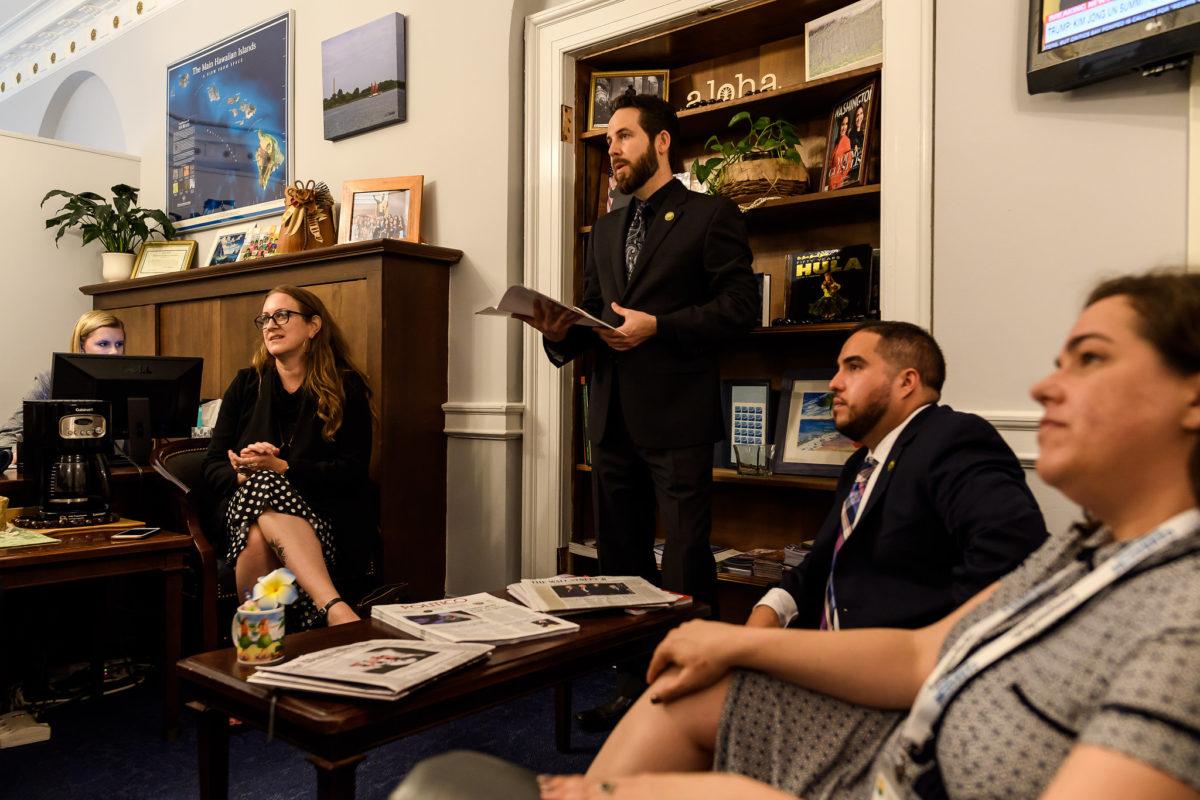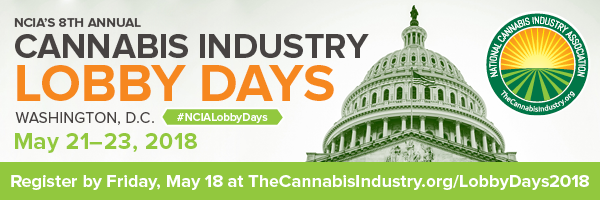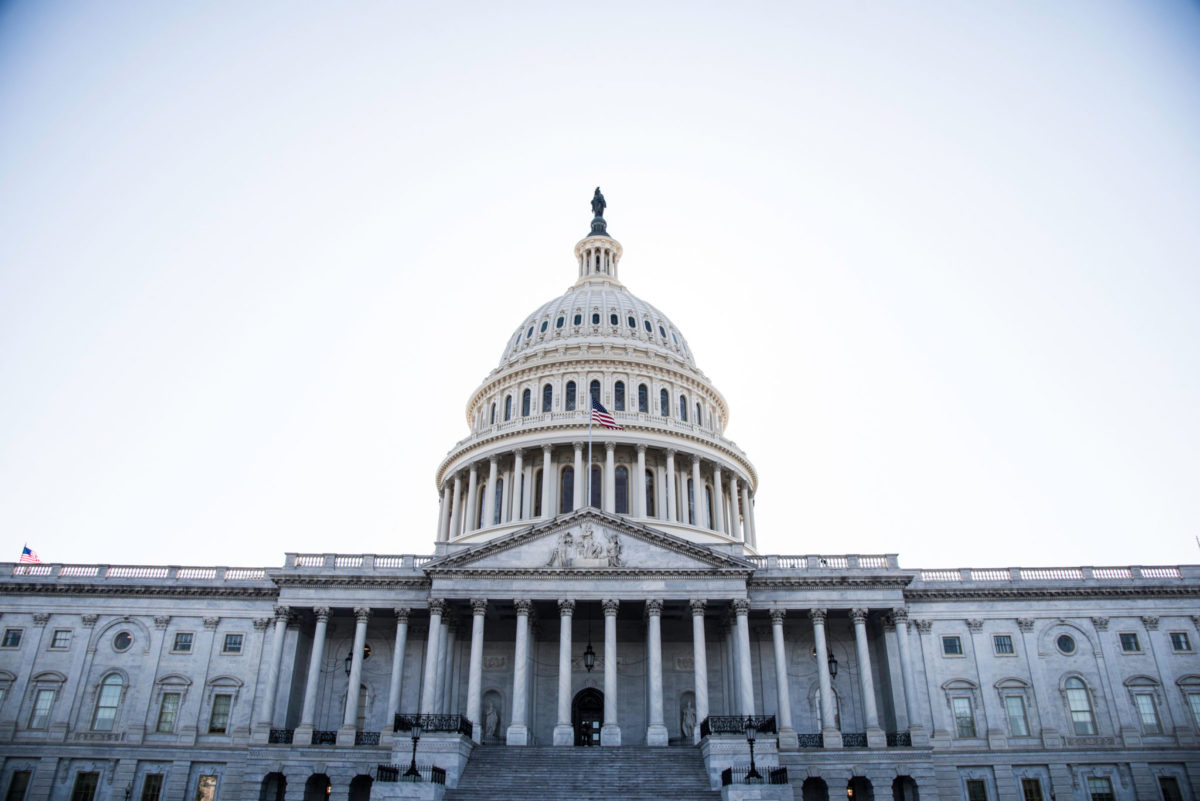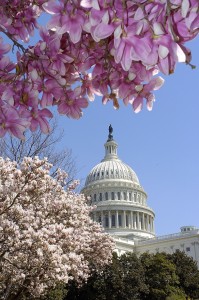Why it’s Critical For Cannabis Business Owners to Advocate for Policy Reform

by Rachelle Lynn Gordon, NCIA Editorial Contributor
Cannabis legalization reform has been in the works for years and will certainly continue for years to come due to the plant’s Schedule I status. In addition to the activists and organizations who have paved the way for marijuana legalization for decades, such as NORML, Marijuana Policy Project, and Students for Sensible Drug Policy (SSDP), cannabis business owners are now at the forefront of what will most certainly be a multi-billion dollar industry within a short matter of time. But why is it important for these cultivators, dispensary owners, and investors to be directly involved with legalization advocacy?
“Advocacy is critical at this stage, where there is still so much progress to be made at the state and federal levels,” says David Murét, Co-founder & COO of Viridian Staffing. “While I believe that national legalization is now a foregone conclusion, the form in which it takes and who it will end up benefiting is still an open question.”
At this point in time, 30 states and the District of Columbia have legalized medical and/or adult-use cannabis, each one with their own set of rules and regulations. As more and more states begin to come online and design their own programs, lawmakers will look to states where cannabis is already legal in order to learn from both successes and mistakes. At the federal level however, things are far more complicated.
While marijuana remains an illegal drug in the eyes of the federal government, certain protections are in place for businesses that are operating in compliance with their own states’ regulations. Several members of Congress representing these states have been pushing for even further protections and/or straight legalization, in spite of current Attorney General Jeff Sessions’ staunch anti-cannabis stance. In January, Sessions rescinded the Cole Memo, which had previously stated that federal funds shall not be directed towards enforcing federal cannabis policy within states that have passed for those operating in compliance with the items stated in the memo. However, this doesn’t mean that state prosecutors have to go after compliant businesses
Fortunately, the move was a moot point. A rider bill in the federal budget proposal, which is essentially a must-pass in order to prevent a government shutdown, maintained the protections that the Rohrabacher-Farr amendment (now Rohrabacher-Blumenauer amendment), which prevents the DOJ from going after state-legal medical cannabis. A bipartisan group of 62 members of Congress sent a letter to House appropriations leaders calling for action.
“We respectfully request that you include language barring the Department of Justice from prosecuting those who comply with their state’s medical marijuana laws,” the lawmakers, led by Reps. Dana Rohrabacher (R-CA) and Earl Blumenauer (D-OR), wrote. “We believe such a policy is not only consistent with the wishes of a bipartisan majority of the members of the House, but also with the wishes of the American people.” These protections are now included through September 30th.
David Sutton, President & COO of NanoSphere Health Sciences, agrees that time is of the essence in order to create new legislation that will positively impact the industry in years to come.
“Cannabis business owners and professionals have to participate in advocacy,” he argues. “No matter how many states adopt some form of cannabis legalization, the industry still needs change at the federal level. Without a federal shift in cannabis policy, operators in the industry will remain hampered and handcuffed from growth.”
Many canna-business owners are not only involved with pro-legalization policy efforts with the industry’s future in mind, but also the end consumers. High-profile cases of medical marijuana patients becoming ill due to flower containing mold and instances of widespread pathogen prescences from certain cultivators have increased efforts to prevent these products from getting to market.
“We have a responsibility to ensure this business grows in the right way,” explains Brett Johnson, Founder & CEO of Spectrum-Gro. “We have to be the adults in the room. I am always advocating for the end users – we need to guarantee safe and consistent products that are free from harsh chemicals and other pathogens. If the current leaders in this industry do not advocate for the future, there could be negative results across the board – from cultivation to the consumer.”
There are many ways business owners and professionals within the cannabis space to get involved with advocacy. NCIA Lobby Days brings hundreds of industry professionals and thought leaders to Washington, D.C. in order to tell their stories to lawmakers and push for cannabis reform. In addition, working with local organizations within their own states and jurisdictions is a wonderful way for entrepreneurs to spread awareness and potentially help build legislation in their communities.
“If we want to see how big the industry could be and how many lives can be changed for the better, you cannot simply rely on just hope, everyone needs to act,” adds Sutton. “Change comes from the masses and the masses need each and every owner and professional to participate in industry advocacy.”
Rachelle Lynn Gordon is a Minneapolis-based writer and reporter and graduate of Hamline University. She has contributed to publications such as Cannabis Now Magazine and High Times.

News Alert! Omnibus Update: Medical cannabis businesses protected through September 30

by Michelle Rutter, NCIA Government Relations Manager
After years of continuing resolutions and many rounds of negotiations, Congress reached a budget deal and passed a new omnibus spending package that funds the government through the remainder of FY2018, which ends on September 30.
This new spending bill does include the Leahy amendment (formerly the Rohrabacher-Farr amendment), which prohibits the Department of Justice from using tax dollars to enforce federal law against state-legal medical cannabis patients and businesses. Following the rescission of the Cole Memo in January by Attorney General Jeff Sessions, NCIA and our allies in Washington, DC pushed even harder to ensure that this language, which has been included in federal appropriations bills since 2014, was included in the spending package for the remainder of FY2018. In addition to language protecting state-legal medical cannabis programs, the omnibus bill unfortunately also included a provision that continues to block Washington, DC from taxing and regulating adult-use cannabis, despite the fact that voters approved the legalization measure nearly four years ago.
In normal budget cycles, Congress passes a fiscal year budget that goes from October 1 until September 30. But in these extraordinarily partisan times, Congress has been unable to agree on an annual budget and has patched together short-term funding bills called Continuing Resolutions (CR’s), which maintains current funding levels. Since just last September, there have been five such short-term CR’s. All of these CR’s have included the Rohrabacher-Farr (now Rohrabacher-Blumenauer in the House and the Leahy amendment in the Senate) amendment which protects medical cannabis businesses, programs, and patients in states where it’s legal. The last of these continuing resolutions is set to expire on Friday, March 23rd. The new omnibus spending bill will continue to fund the government through the remainder of FY2018, which ends on September 30, 2018.
The congressional appropriations process for FY2019 is already underway. While we have achieved a victory in extending medical cannabis protections, there’s much more work to be done. NCIA is lobbying not only to continue the medical cannabis protections, but to also expand protections to protect all legal cannabis businesses from federal interference, including adult-use businesses operating in the eight states with such programs. We are also working to pass a cannabis banking amendment, as well as an amendment that would protect veterans who choose to participate in state-legal cannabis programs. In addition to all of these appropriations amendments, NCIA is still working to pass legislation that would solve the cannabis banking problem, amend IRC Section 280E, and, ultimately, end cannabis prohibition.
You can get involved and make your mark on Congress by registering for NCIA’s 8th Annual Cannabis Industry Lobby Days in May.

The Future of Medical Cannabis Reform – Now What?
by Michelle Rutter, NCIA Government Relations Manager
Late in the evening of September 6th, the House Rules Committee held a hearing to discuss amendments to the upcoming appropriations bill that will fund the federal government for the upcoming fiscal year. The Rules Committee is used by House leadership to maintain control over the House floor, and is heavily stacked in favor of the majority party (by a 2:1 ratio).
Unfortunately, the committee decided not to allow the Rohrabacher-Blumenauer amendment (formerly the Rohrabacher-Farr amendment) to move forward for a vote on the Floor. Despite the fact that 46 states have legalized some form of cannabis, 90% of the public supports medical marijuana, and over 70% think the federal government should not interfere with state marijuana reforms, the Rules Committee singlehandedly decided to strip out the language protecting states’ medical marijuana laws that have been in law since 2014.
Although this came as no surprise, it is still disappointing. So, what’s next going forward? There are a couple of possible scenarios.
Scenario 1: In July, the Senate Appropriations Committee passed an amendment offered by Vice Chairman Patrick Leahy (D-VT) by a voice vote. The Leahy amendment is identical to the Rohrabacher-Blumenauer amendment and would protect medical cannabis businesses and patients for another year. If this legislation passes the Senate, the opportunity still exists for Congress to reconcile the differences and agree to maintain the current protections in medical cannabis states.
Scenario 2: There are rumors circulating that Congress will pass a funding bill for Hurricane Harvey relief and that this bill would include a debt ceiling increase and continue funding the federal government through mid-December. If this happens, the Rohrabacher-Farr amendment will continue to protect medical cannabis patients and businesses until a new appropriations bill is passed.
Scenario 3: Neither the House or the Senate agree to maintaining this provision, and Congressional protections for states’ medical cannabis laws disappear in the short term. Although this is the worst scenario of the three listed here, the opportunity still exists for Congress to re-insert this provision during next year’s budget negotiations.
NCIA will continue to advocate and communicate with Members of Congress on the behalf of the cannabis industry. While the House Rules Committee has made a disappointing decision, there is still hope that the Rohrabacher-Blumenauer/Leahy amendments will be included in federal law for yet another year. As we continue to represent our member-businesses, we will be vigilant in our efforts to bring about the best possible positive outcome in the current political climate.
Breaking It Down: Appropriations
by Michelle Rutter, NCIA Government Relations Coordinator
CannApprops
Every year, Congress must pass appropriations legislation to fund federal government operations for the upcoming fiscal year. This annual funding bill has been one of the only avenues by which pro-cannabis reform language can be inserted into the federal budget, due to Congress’ inability to pass meaningful stand-alone legislation addressing the legal cannabis industry.
The Appropriations Committees have always been two of the most influential committees in Congress, since the Committees’ power is derived from its ability to disburse funds. The House Appropriations Committee is currently chaired by Rep. Hal Rogers (R-KY), with Rep. Nita Lowey (D-NY) as the highest-ranking Democratic member, and the Senate Appropriations Committee is chaired by Thad Cochran (R-MS) with Barbara Mikulski (D-MD) as the ranking Democrat.
Because it is unlikely that Congress will enact stand-alone pro-cannabis legislation this session, NCIA has decided to focus intensely on the appropriations process this year. In addition to making sure that the Rohrabacher-Farr medical cannabis amendment passes for the third year in a row, NCIA will be focusing on getting amendments included in the final budget bill that pertain to banking access and that protect all state-compliant cannabis businesses, not just medical ones. The continued inclusion of the Rohrabacher-Farr amendment in the final budget bill is crucial to cannabis policy moving forward into a new administration. We at NCIA want to ensure that this amendment is seen as non-controversial as we go into FY2017.
Over the years, the budget process in Washington, D.C. has become broken and it has become harder for Congress to perform basic functions. New Speaker of the House Paul Ryan (R-WI) has thrown his support behind returning to “regular order” in the budget process – meaning that Congress would return to the piece-by-piece appropriations process rather than passing large omnibus budget bills as has been the case in recent years. Although the Speaker has good intentions, small groups and caucuses in the House of Representatives are unhappy with the spending levels proposed in many of the new appropriations bills, making it more likely that an omnibus bill will again be passed, despite Speaker Ryan’s desire to return to regular order.
This “regular order” of the appropriations process usually starts in February as various pieces of legislation works its way through the Appropriations Committee and finally to the House/Senate Floor. Congress typically starts with less controversial bills in April and then works through the spring and summer months until all appropriations bills are completed. Legally, they need to be completed by September 30th (as October 1st is the start of the new fiscal year). Regular order gives NCIA multiple opportunities to insert pro-cannabis amendments into the legislation. With an omnibus or stopgap bill, it becomes much more difficult to include pro-cannabis amendments.
In Years Past
Last year, there were two pro-cannabis amendments included in the Commerce, Justice, and Science Appropriations bill that made it into the final budget: the Bonamici-Massie industrial hemp amendment and the Rohrabacher-Farr medical marijuana amendment. The Bonamici-Massie amendment blocks federal money from being used to prevent states from allowing the use, distribution, possession, or cultivation of industrial hemp. This means that the federal government cannot use federal funds to enforce federal law against state-compliant businesses dealing with hemp. This measure passed the House of Representatives overwhelmingly: the vote was 282-146, with 101 Republicans voting in favor.
The second pro-cannabis amendment in the FY2016 budget was the Rohrabacher-Farr medical marijuana amendment, which was included for the second year in a row. This amendment bans the Department of Justice from spending money to prevent the implementation of state-level medical cannabis programs, in addition to removing funding for federal medical cannabis raids, arrests and prosecutions in states where medical cannabis is legal. The vote count increased from 219-189 in 2014 to 242-186 this year, with 67 Republicans voting ‘Yes’. Just like the Bonamici-Massie hemp amendment, the Rohrabacher-Farr amendment prohibits the Department of Justice from enforcing federal law against state-legal medical cannabis businesses.
Remember…
It’s crucial to remember that these appropriations amendments only pertain to the current fiscal year and have to be voted on and renewed every year. The NCIA team and our lobbyists in Washington, D.C., are working intently with appropriators and other Members of Congress to ensure that pro-cannabis amendments and provisions are included in the federal budget this year – whether that be through “regular order” or otherwise.

Want your voice heard in our nation’s capitol on issues affecting the cannabis industry? Join us for our 6th Annual NCIA Member Lobby Days in Washington, D.C., on May 12 & 13, 2016.
To make the most out of the Lobby Days experience, register early so that we can begin the process of setting up meetings for you on the Hill. Members who register before April 30th will be entered to win admission and travel expenses for two at NCIA’s Cannabis Business Summit & Expo, including airfare and lodging.
Appropriations Pros and Cons in 2015 for Cannabis
by Michelle Rutter, Government Relations Coordinator
Every year, Congress must pass appropriations legislation to fund the government for the upcoming fiscal year. This annual funding bill has been one of the only avenues by which pro-cannabis reform language can be inserted into the federal budget, due to Congress’ inability to pass meaningful stand-alone legislation addressing the legal cannabis industry.
This year, two riders were included in the budget bill pertaining to cannabis. The first, known as the Rohrabacher-Farr amendment, bans the Department of Justice from spending money to prevent the implementation of state-level medical cannabis programs, in addition to removing funding for federal medical cannabis raids, arrests, and prosecutions in states where medical cannabis is legal. When debated on the House floor this summer, the vote count increased from 219-189 in 2014 to 242-186 this year, with 67 Republicans voting ‘Yes.’ The Rohrabacher-Farr language was included in the final budget bill for the second year in a row, which is a promising sign of progress in Washington, D.C.
 A rider known as the Bonamici-Massie amendment, which prevents the DEA from intervening with state-sanctioned and legal hemp, was also included in the final budget package. This section blocks federal money from being used to prevent states from allowing the use, distribution, possession, or cultivation of industrial hemp. It’s important to note that although this progress is promising, the DEA has ignored appropriations language pertaining to cannabis in years prior.
A rider known as the Bonamici-Massie amendment, which prevents the DEA from intervening with state-sanctioned and legal hemp, was also included in the final budget package. This section blocks federal money from being used to prevent states from allowing the use, distribution, possession, or cultivation of industrial hemp. It’s important to note that although this progress is promising, the DEA has ignored appropriations language pertaining to cannabis in years prior.
There were other commonsense policy reforms related to cannabis, which were proposed and added to earlier versions of the budget package, but which unfortunately did not make it into the final bill. A crucial example was a provision which would have prevented the Treasury Department from punishing banks that work with legitimate marijuana-related businesses. Another would have allowed Veterans Affairs (VA) doctors to recommend medical cannabis to veterans without fear of retaliation or punishment, and would have also prevented the VA from denying services to any veteran who is a medical marijuana patient.
An additional disappointment in the final budget package was the continuation of language from the previous year which blocks the adult-use sale and purchase of cannabis in Washington, D.C.
It’s important to remember that these appropriations amendments only protect states’ medical cannabis and hemp laws for the upcoming fiscal year and have to be re-included and voted on every year. While this progress is encouraging, it falls short of achieving our goals. NCIA will continue lobbying on behalf of the cannabis industry to achieve the substantive and lasting reforms that our businesses deserve.
Timeline: 2015 Legislative Year in Review
by Michelle Rutter, Government Relations Coordinator
As we look forward to 2016, there’s much on the horizon for the cannabis industry. NCIA remains dedicated in its effort to pass banking and tax legislation through Congress that would provide immediate relief to cannabis-related businesses all over the country.
In addition to the federal advocacy that NCIA engages in every day, there will be at least five states seeking to legalize and regulate adult-use cannabis via the ballot initiative process: Arizona, California, Maine, Massachusetts, and Nevada. It’s also likely that Florida will have another ballot initiative relating to medical cannabis, and it’s possible that other states will move forward with cannabis reform through ballot initiatives or legislative processes. What happens over the next twelve months will be crucial in shaping the future of the legitimate and responsible cannabis industry.
While 2015 was a milestone year for cannabis reform, that same momentum will be necessary in order to continue moving the conversation forward with Congress in Washington, D.C. The Rohrabacher-Farr medical cannabis amendment earned more that 60 Republicans votes. For the first time ever, there are multiple pro-cannabis bills that have been introduced in the U.S. Senate. Continued progress is vital in garnering more national support for cannabis reform, so make sure your interests are heard through national advocacy, education, and community with NCIA.
The timeline below lays out some of the highlights from a busy year in cannabis industry advocacy. We look forward to more exciting milestones with your help in 2016!
*Click on the “Full Screen” button (with the four arrows) at the bottom of the image to expand its size.
Policy Update: Success in the Senate
by Michelle Rutter, Government Relations Coordinator
In the first week of June, the cannabis industry was celebrating its victories in the House of Representatives. At the end of last week, we were celebrating a victory in the US Senate, too.
At the beginning of the month, the U.S. House of Representatives debated the Commerce, Justice, and Science (CJS) Appropriations bill (HR 2578), which funds applicable government agencies for the upcoming FY2016. This year, there were four cannabis-related amendments under consideration in the House: the Rohrabacher-Farr medical marijuana amendment, the McClintock-Polis adult-use marijuana amendment, the Bonamici-Massie industrial hemp amendment, and the Perry CBD oil amendment. You can read about the results of the House votes in this NCIA blog post.
On June 11, two cannabis-related amendments were brought before the Senate Appropriations Committee. Cannabis champion Sen. Barbara Mikulski (D-MD) offered a medical cannabis amendment, which would ban the Department of Justice from interfering with state-compliant medical cannabis businesses. In addition, Sen. Jon Tester (D-MT) offered a hemp amendment that would protect state industrial hemp laws from the Department of Justice’s interference. These amendments are the Senate companions to the House’s Rohrabacher-Farr and Bonamici-Massie amendments, respectively.
The Senate Appropriations Committee voted with Sen. Mikulski to protect state medical marijuana laws 21-9. Senator Jerry Moran (R-KS) changed his original ‘No’ vote to a ‘Yes’, while presidential contender and Senator Lindsey Graham (R-SC) also attempted to change his ‘No’ vote to a ‘Yes’, but was too late. Sen. Tester’s industrial hemp amendment also passed through the committee via voice-vote.
Victory is sweet, but it’s important to remember that these appropriations amendments only protect states’ medical cannabis and hemp laws for the upcoming fiscal year. As encouraging as the appropriations season has been, it is still imperative that we pass comprehensive cannabis banking and 280E reform bills in order to be treated like every other American business.
Below is the detailed vote breakdown from the Senate committee’s vote on the Mikulski amendment:
| Republicans |
Democrats |
| Thad Cochran (R-MS): No |
Barbara Mikulski (D-MD): Yes |
| Mitch McConnell (R-KY): No |
Patrick Leahy (D-VT): Yes |
| Richard Shelby (R-AL): No |
Patty Murray (D-WA): Yes |
| Lamar Alexander (R-TN): Yes |
Dianne Feinstein (D-CA): No |
| Susan Collins (R-ME): Yes |
Richard Durbin (D-IL): Yes |
| Lisa Murkowski (R-AK): Yes |
Jack Reed (D-RI): Yes |
| Lindsey Graham (R-SC): No |
Jon Tester (D-MT): Yes |
| Mark Kirk (R-IL): No |
Tom Udall (D-NM): Yes |
| Roy Blunt (R-MO): Yes |
Jean Shaheen (D-NH): Yes |
| Jerry Moran (R-KS): Yes |
Jeff Merkley (D-OR): Yes |
| John Hoven (R-ND): No |
Chris Coons (D-DE): Yes |
| John Boozman (R-AR): No |
Brian Schatz (D-HI): Yes |
| Shelley Moore Capito (R-WV): Yes |
Tammy Baldwin (D-WI): Yes |
| Bill Cassidy (R-LA): Yes |
Chris Murphy (D-CT): Yes |
| James Lankford (R-OK): No |
|
| Steve Daines (R-MT): Yes |
|
CANNABIS MILESTONE: CONGRESS VOTES IN FAVOR OF THE ROHRABACHER-FARR AMENDMENT
by Michelle Rutter, NCIA Government Relations Coordinator
This week was a milestone in the cannabis industry.
On Wednesday, the U.S. House of Representatives debated the Commerce, Justice, and Science (CJS) Appropriations bill (HR 2578), which funds applicable government agencies for the upcoming FY2016. This year, there were four cannabis-related amendments under consideration: the Rohrabacher-Farr medical marijuana amendment, the McClintock-Polis adult-use marijuana amendment, the Bonamici-Massie industrial hemp amendment, and the Perry CBD oil amendment. The results signaled a clear victory for the cannabis industry.
Rohrabacher-Farr
For the second year in a row, Congress voted in favor of the Rohrabacher-Farr medical cannabis amendment. This amendment, introduced by Reps. Dana Rohrabacher (R-CA) and Sam Farr (D-CA), bans the Department of Justice from spending money to prevent the implementation of state-level medical cannabis programs, in addition to removing funding for federal medical cannabis raids, arrests and prosecutions in states where medical cannabis is legal. The vote count increased from 219-189 in 2014, to 242-186 this year, with 67 Republicans voting ‘Yes.’
McClintock-Polis
For the first time ever, the McClintock-Polis amendment was offered on the House floor. This amendment, introduced by Reps. Tom McClintock (R-CA) and Jared Polis (D-CO), is similar to the Rohrabacher-Farr amendment, but would have extended the same protections from the Department of Justice to non-medical retail marijuana businesses and consumers in states where adult-use sales have been legalized. The measure narrowly failed, 206-222, with more than 40 Republicans in support.
Bonamici-Massie
This amendment, officially named the Bonamici-Massie-Blumenauer-Polis amendment, blocks federal tax dollars from being used to prevent states from allowing the use, distribution, possession, or cultivation of industrial hemp. A member of the cannabis family, hemp is a valuable agricultural commodity that can be found in more than 25,000 commercial products including food, paper, beauty products, and more. The measure passed overwhelmingly, 282-146, with 101 Republicans voting in favor.
Perry
Rep. Scott Perry (R-PA) proposed an amendment to the CJS bill that would protect state laws that allow the use of CBD oils, but still leaves most medical marijuana patients and their providers vulnerable to federal arrest and prosecution. The measure was overwhelmingly passed by a margin of 297-130.
Just a few years ago, pro-cannabis amendments passing Congress was something that those involved in the industry could only dream of. Now, we’re just 16 votes shy of limiting the Department of Justice’s interference with any state-sanctioned marijuana business (McClintock-Polis). Though Congress moves at a notoriously glacial pace, these amendments shed light on politicians’ evolving stances on cannabis policy. These votes prove that NCIA, and all of our members, are slowly but surely convincing Congress that the cannabis industry is to be taken seriously.
Cannabis Milestone: Congress votes in favor of the Rohrabacher-Farr amendment
by Michelle Rutter, NCIA Government Relations Coordinator
This week was a milestone in the cannabis industry.
On Wednesday, the U.S. House of Representatives debated the Commerce, Justice, and Science (CJS) Appropriations bill (HR 2578), which funds applicable government agencies for the upcoming FY2016. This year, there were four cannabis-related amendments under consideration: the Rohrabacher-Farr medical marijuana amendment, the McClintock-Polis adult-use marijuana amendment, the Bonamici-Massie industrial hemp amendment, and the Perry CBD oil amendment. The results signaled a clear victory for the cannabis industry.
Rohrabacher-Farr
For the second year in a row, Congress voted in favor of the Rohrabacher-Farr medical cannabis amendment. This amendment, introduced by Reps. Dana Rohrabacher (R-CA) and Sam Farr (D-CA), bans the Department of Justice from spending money to prevent the implementation of state-level medical cannabis programs, in addition to removing funding for federal medical cannabis raids, arrests and prosecutions in states where medical cannabis is legal. The vote count increased from 219-189 in 2014, to 242-186 this year, with 67 Republicans voting ‘Yes.’
McClintock-Polis
For the first time ever, the McClintock-Polis amendment was offered on the House floor. This amendment, introduced by Reps. Tom McClintock (R-CA) and Jared Polis (D-CO), is similar to the Rohrabacher-Farr amendment, but would have extended the same protections from the Department of Justice to non-medical retail marijuana businesses and consumers in states where adult-use sales have been legalized. The measure narrowly failed, 206-222, with more than 40 Republicans in support.
Bonamici-Massie
This amendment, officially named the Bonamici-Massie-Blumenauer-Polis amendment, blocks federal tax dollars from being used to prevent states from allowing the use, distribution, possession, or cultivation of industrial hemp. A member of the cannabis family, hemp is a valuable agricultural commodity that can be found in more than 25,000 commercial products including food, paper, beauty products, and more. The measure passed overwhelmingly, 282-146, with 101 Republicans voting in favor.
Perry
Rep. Scott Perry (R-PA) proposed an amendment to the CJS bill that would protect state laws that allow the use of CBD oils, but still leaves most medical marijuana patients and their providers vulnerable to federal arrest and prosecution. The measure was overwhelmingly passed by a margin of 297-130.
Just a few years ago, pro-cannabis amendments passing Congress was something that those involved in the industry could only dream of. Now, we’re just 16 votes shy of limiting the Department of Justice’s interference with any state-sanctioned marijuana business (McClintock-Polis). Though Congress moves at a notoriously glacial pace, these amendments shed light on politicians’ evolving stances on cannabis policy. These votes prove that NCIA, and all of our members, are slowly but surely convincing Congress that the cannabis industry is to be taken seriously.






 A rider known as the Bonamici-Massie amendment, which prevents the DEA from intervening with state-sanctioned and legal hemp, was also included in the final budget package. This section
A rider known as the Bonamici-Massie amendment, which prevents the DEA from intervening with state-sanctioned and legal hemp, was also included in the final budget package. This section 